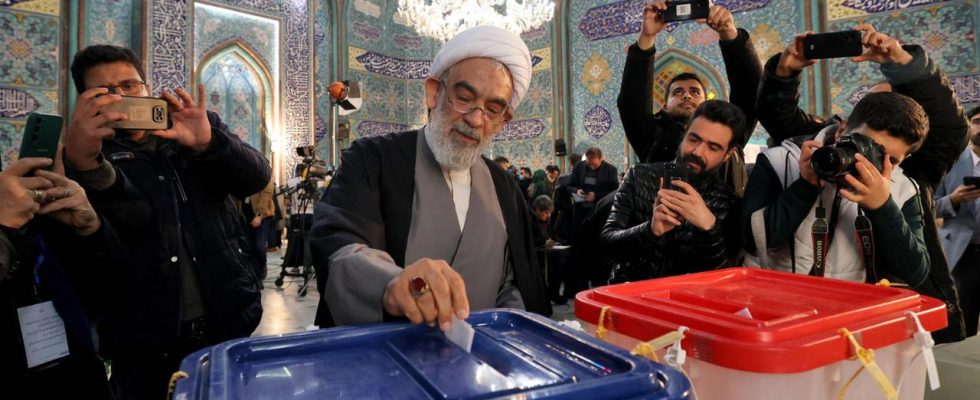comment
Iranians should elect a new parliament and the Council of Experts. “Should” because the majority probably stayed away – mainly out of protest. Because the elections are a big show directed by the regime.
People in the West are eagerly awaiting the first official figures on the elections in Iran – published by a regime that people hardly believe a word of. The first reports from government-affiliated news agencies now indicate a 41 percent voter turnout.
But this data is not only unverifiable – it is simply not relevant here. Because the entire election environment has little to do with Western standards.
An opinion research institute abroad probably determined a voter turnout of only 25 percent in an online survey. However, this can only be a rough guide, as there are various hurdles in such surveys to protect the respondents.
Regime wants to measure the temperature of society
The results of the current elections are only really decisive for one side – namely the regime itself. Only that side has the real data.
And that is probably one of the most important reasons why the leadership in Tehran is making such an enormous effort to create an election show. The responsible Guardian Council has apparently cast – yes, you could say – more than 20,000 applicants across the country.
Of course, they also want to give themselves the appearance of a democratic republic. After all, it is called the Islamic Republic of Iran – and a republic includes elections. But these elections are simply the leadership’s best chance to hold a thermometer to society and take its temperature.
The election boycott is the only option
And it is high, as became clear after the death of the young Iranian Jina Mahsa Amini in September 2022. The regime doesn’t want to see anything like that happen again. All of a sudden, anger and despair, especially among young people in Iran, have been released. After months, the regime only got the protests on the streets under control by cracking down on them brutally and executing participants with death sentences – an effective deterrent.
Many of those who took to the streets back then are now not only disillusioned but also depressed. They see no chance of changing anything in their country, whether through protests or elections. Even if the Guardian Council had approved candidates from the reform camp, it would have changed little for them; in their eyes, they do not represent a real opposition. Boycotting the elections seems to be the only thing left for them.
Using an identification number that every Iranian has, the authorities can see who voted – and who didn’t. A means of pressure because no one knows the consequences of a boycott.
But the evaluation must scare the leadership. Because it is probably mainly the young Iranians who do not feel represented by the old men with turbans and long robes. To them, the mullahs must seem like something out of a dusty history book, who have nothing to do with their own hip reality, even if they are still only allowed to live it out at home and on social media.
Leadership under pressure
The elections are putting the leadership in Tehran under pressure, even if they don’t show it externally. Because there will be day X when Supreme Leader Ayatollah Ali Khamenei steps down or dies. During the elections, the Iranians should also choose members of a body, the Council of Experts, which will then decide on his successor. It’s hard to imagine that young people would accept “continuing like this only with a new head”.
The masterminds in Tehran also know this. Based on the current election results, they are likely to have a plan in place to use all means possible to prevent an escalation on Day X with a suitable new Supreme Leader. But will this plan work?
Iran expert Katajun Amirpur explains on Deutschlandfunk that a majority of the population does not want system reforms, but rather the end of the Islamic Republic.
And the regime knows that sooner or later it will have to face it. The elderly mullahs with their dubious values only seem repulsive to many of the life-hungry young Iranians.
Karin Senz, ARD Istanbul, currently Tehran, tagesschau, March 2nd, 2024 5:18 p.m

